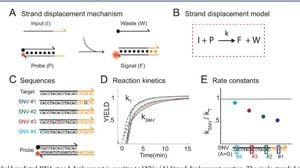French bioplastics company Carbios has hit some turbulent waters recently, announcing significant delays to the construction of its eagerly awaited PET biorecycling plant located in Longlaville, France. This setback is largely attributed to issues concerning necessary funding, and it has led to substantial drops in the company's stock price, sending ripples of concern through the investment community.
The delay announced by Carbios stretches from six to nine months, resulting from what the firm has referred to as "delayed funding pending completion of additional financing under satisfactory conditions." This financial obstacle emerged shortly before the holidays, prompting the company to revise their construction timeline and strategy.
Investors reacted negatively to the news. Stock prices plummeted, with reports indicating the shares were down by over thirty percent at one point, creating unease among stakeholders who had hoped for progress on the biorecycling front. The timing of this setback raises questions about Carbios' stability and its long-term viability amid growing environmental concerns linked to plastic waste.
Part of the turbulence can also be traced to changes within the company's leadership. Philippe Pouletty, the founder and chairman of Carbios, stepped up as the interim CEO on December 18, 2024, following Emmanuel Ladent's resignation from the CEO position. Ladent had been leading the company during its pursuit of innovative recycling technologies but stepped down just as these pivotal finance negotiations faced hurdles.
Pouletty, who took over the role, expressed the need for careful oversight during these trying times. "To safeguard our cash flow, we are postponing construction of the plant in line with the expected timetable for public grants and the negotiation of necessary funding," he stated, emphasizing the prudent approach the company must now take in a complicated market.
Interestingly, Carbios still retains solid cash reserves, reportedly having €92.8 million as of November 30, 2024. This financial cushion arises from various non-dilutive grants, including €30 million from the France 2030 initiative and additional regional funds from Grand Est totaling €12.5 million. Although these resources provide some assurance of liquidity, the uncertainty surrounding the additional €86 million sought through the Strategic Projects Guarantee scheme remains problematic, particularly as negotiations continue with the indicated investor, Indorama Ventures.
Looking forward, Carbios remains committed to its strategy of advancing enzyme-based recycling methods. Potential future contracts are on the horizon as the firm actively engages with other financial institutions to secure the needed capital for its projects. The company hopes to finalize several major binding commercial contracts within the first half of 2025, which might provide more stability and renew investor confidence.
While the current state of affairs for Carbios might seem bleak, it’s important to recognize the growing interest and urgency surrounding sustainable waste management solutions. The bioplastics industry, particularly biorecycling, faces unique challenges but also presents opportunities, especially as global awareness of environmental impacts continues to rise.
Despite the recent setback, industry observers remain cautiously optimistic about Carbios’ capabilities. The company has been acknowledged as a pioneer in its field, showcasing innovative approaches to tackling plastic and textile waste through its enzymatic processes. This technology is not just about creating recycling methods; it aims to reinvent the entire lifecycle of plastics within the broader narrative of sustainability.
To facilitate transparency and provide clarity to investors, the company has scheduled a webcast for December 19, 2024. During this event, Carbios executives will present updates on the situation, strategies going forward, and answer any questions investors may have, hoping to aid in alleviating some uncertainty surrounding the company's recent announcements.
For Carbios, the road ahead remains fraught with challenges, but many believe the company’s commitment to innovation and sustainability will eventually yield positive results. The biorecycling plant, once completed, is positioned to make significant strides toward addressing the global plastic crisis, provided it can navigate the current financial obstacles.
Indeed, the development of this facility could represent not only a pivotal moment for Carbios but also serve as part of the necessary transitions toward more sustainable industrial practices. The pressure is now on the company and its new leadership to restore investor confidence whilst ensuring the ambitious vision of biorecycling becomes reality.



